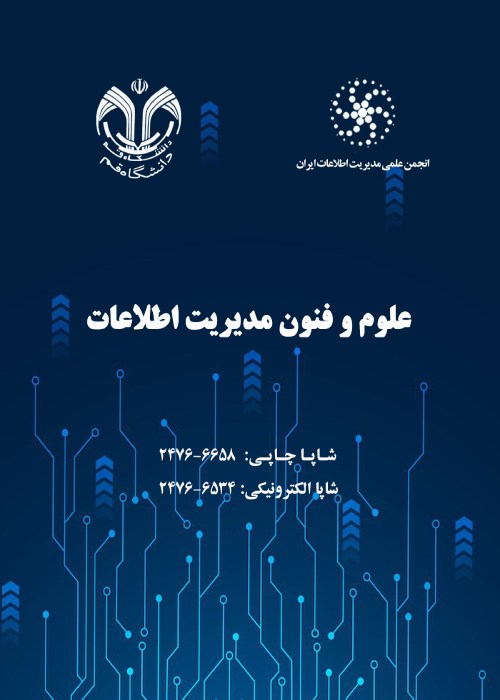Educational Entrepreneurship Model in Universities and Higher Education Institutions in Iran
Author(s):
Article Type:
Research/Original Article (دارای رتبه معتبر)
Abstract:
Purpose
One of the distinctive features of successful universities today is their entrepreneurial characteristics, and the absence of this in Iran's higher education system is quite noticeable and tangible. Currently, the universities in the country are facing numerous challenges, including graduate unemployment, brain drain, inadequate student skill training, student demotivation, a quantitative increase in students without a corresponding increase in quality, and limited interaction between the industry and the university. The root of these issues can be attributed to the low level of investment and insufficient focus on various dimensions of entrepreneurship. There is also a tendency to prioritize theoretical knowledge over scientific and practical knowledge, and a lack of emphasis on fostering creativity and innovative abilities in learners. A review of the country's macro policies also reveals that the incorporation of entrepreneurship into educational systems has long been a concern. However, in practice, we have observed a lack of emphasis on this issue by universities. Therefore, the present research was conducted to identify the elements of the educational entrepreneurship model in universities and higher education institutions in Iran and to present a conceptual model.Method
The current research is applied in terms of its purpose. In terms of data, it is qualitative and based on systematic database theory. In terms of implementation, it is exploratory and based on an inductive approach. The statistical population consists of educational entrepreneurs, educational entrepreneurship policy makers, and entrepreneurship professors from 8 top universities in the country: Tehran University, Tarbiat Modares University, Sharif University, Amir Kabir University of Technology, Shahid Chamran University of Ahvaz, Isfahan University of Technology, Shahid Beheshti University, and Kerman University of Art. In order to select the sample, a purposeful and conscious approach was used, and sampling was done using the snowball method. The interview was conducted in accordance with the guidelines for 30 to 60 minutes. Sampling was conducted until theoretical saturation was reached, and ultimately, 15 people were interviewed. To collect data, the library method (scanning) and the field method (interview) were used. To assess the validity of the findings, three pluralistic methods were employed to test the reliability of the model. These methods included retesting the work process, conducting a reliability test among the coders, and interviewing new participants. Finally, for data analysis, the theoretical coding technique was used in three stages: open coding, central coding, and selective coding.Findings
The results obtained indicate that a macro view is necessary for educational entrepreneurship in universities, considering the entire model. It cannot be expected that student entrepreneurship will increase if not all aspects are studied. Several factors contribute to the development of an effective model of educational entrepreneurship in universities. Some factors serve as the foundation for educational entrepreneurship, while others act as catalysts for its emergence. Additionally, there are factors that impede its progress. In order to address this issue, it is essential to identify and implement basic strategies. By considering various factors and implementing these strategies, positive outcomes and results in educational entrepreneurship can be achieved.Keywords:
Language:
Persian
Published:
Journal of Sciences and Techniques of Information Management, Volume:9 Issue: 3, 2023
Pages:
319 to 350
magiran.com/p2708985
دانلود و مطالعه متن این مقاله با یکی از روشهای زیر امکان پذیر است:
اشتراک شخصی
با عضویت و پرداخت آنلاین حق اشتراک یکساله به مبلغ 1,390,000ريال میتوانید 70 عنوان مطلب دانلود کنید!
اشتراک سازمانی
به کتابخانه دانشگاه یا محل کار خود پیشنهاد کنید تا اشتراک سازمانی این پایگاه را برای دسترسی نامحدود همه کاربران به متن مطالب تهیه نمایند!
توجه!
- حق عضویت دریافتی صرف حمایت از نشریات عضو و نگهداری، تکمیل و توسعه مگیران میشود.
- پرداخت حق اشتراک و دانلود مقالات اجازه بازنشر آن در سایر رسانههای چاپی و دیجیتال را به کاربر نمیدهد.
In order to view content subscription is required
Personal subscription
Subscribe magiran.com for 70 € euros via PayPal and download 70 articles during a year.
Organization subscription
Please contact us to subscribe your university or library for unlimited access!



